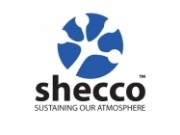We're happy to announce the final round of case studies selected to be presented at ATMO Australia from Embraco, Johnson Controls and Natural Refrigerants Company.
The ATMOsphere Review Panel is pleased to announce the final round of case study selections for ATMOsphere Australia 2018 taking place on 7 May in Sydney.
Embraco, Johnson Controls and Natural Refrigerants Company will discuss their innovative natural refrigerant-based technologies at the conference.
The presentations are:
Embraco | omparative analysis of a semi-hermetic system with HCFC and HC by Isadora Mezari Zoldan
The case study is a comparative analysis at a supermarket of a semi-hermetic system with HCFC and a new solution that consists in a plug’n’play self-contained system using natural refrigerant (HC). The presentation will show the enhancements of Embraco solution, such as environmental impact and customer perception, resulting in 70% faster installation, lower maintenance cost and an increase of 25% on the exhibition area.
Johnson Controls - Industrial Refrigeration Products | Is Australia ready for low charge ammonia heat pumps? by Ricardo Claussen Hoffmann
Industrial heat pumps with natural refrigerants have been used for a long time in Europe, proving to be an excellent solution to reduce operating costs and CO2 emissions. Due to the recent regulations to reduce HFC refrigerants, gas price increase and also the increasingly green mindset, this segment is rising quickly. In Australia, despite of the curent low utilization of the industrial heat pumps, there is an increasing interest for business case analysis considering the application of this equipment. One of the main drivers for this change is the escalation of the gas price in the local market.
This paper describes the current situation in the Australia market for the application of this type of product, as well as some types of industries where heat pumps can be used. A local business case, using a low charge ammonia heat pump of 1,4MW will be also described.
Natural Refrigerants Company | The case for transcritical cold storage in Australia by Jonathon Hare
Local energy consumption data is used retrospectively to highlight possible benchmarking factors that could influence future capital investment decisions to favor natural refrigerant systems, specifically comparing a real CO2 transcritical system with parallel compression installed in Melbourne, VIC versus normalized data from several real Australian low charge two-stage ammonia DX systems in a cold storage application as an example.
